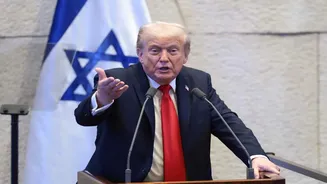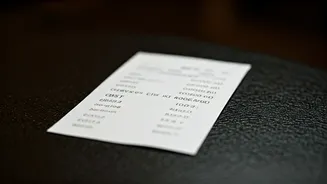US officials have been holding sensitive discussions with a range of countries about forming an International Stabilization Force (ISF) to deploy in Gaza, with a detailed plan to be presented in the coming weeks, added the report, citing three sources closely involved in the process.
The breakdown of the ceasefire on Tuesday highlighted the fragility of the current peace. But the ISF proposal — central to Trump’s upcoming plan — poses politically explosive questions for Israel, Hamas, and the countries considering contributing troops.
According to the report, US Central Command is leading the effort to design the plan, which includes creating a new Palestinian police force trained and vetted by the US, Egypt, and Jordan, alongside troops from Arab and Muslim countries.
Sources said countries such as Indonesia, Azerbaijan, Egypt, and Turkey have shown willingness to participate, though others expressed concerns about Gaza’s volatile security environment.
"If we don't have reliable security and governance in Gaza that the Israelis agree to, we will get stuck in a situation where Israel is attacking all the time,"
Under Trump’s 20-point peace framework, the ISF’s deployment would be a prerequisite for Israel’s further withdrawal from the roughly 50% of Gaza it still controls.
The multinational force would secure Gaza’s borders with Israel and Egypt and prevent arms smuggling. However, this depends on Hamas agreeing to relinquish authority and some of its weapons, a demand many on the Israeli and US right doubt the group will ever meet voluntarily.
The deadly Israeli airstrikes in Rafah on Tuesday, in response to an alleged Hamas attack, reinforced those doubts.
US officials view the ISF as essential to preventing a renewed war but stress the importance of getting it right.
"It is better to move slow and get it right because we are not gonna have a second chance," a senior US official told Axios.
Behind the scenes
The ISF has been a central topic in recent meetings between Trump’s envoys Steve Witkoff and Jared Kushner, Vice President JD Vance, and Secretary of State Marco Rubio during their visits to Israel, the sources said.
Kushner and Witkoff also met extensively two weeks ago with senior Israeli military officials to seek their input.
A senior Israeli official told Axios that the US side presented ideas about the ISF’s size, but Israelis emphasised that legitimacy and combat readiness matter more than numbers.
"The Israelis are nervous and skeptical because they are not in control and they don't have the cards anymore. We told them, 'Let's create the right circumstances and see if Hamas is serious or not,'" a US official was quoted as saying.
Friction point
Few countries are eager to send troops into a conflict zone involving Hamas, rival Palestinian factions, and Israel. Turkey has expressed readiness to participate, but Israel opposes any Turkish presence in Gaza. The US nevertheless wants Turkey, Qatar, and Egypt involved, viewing them as key to persuading Hamas to cooperate.
"The Turks were very helpful in getting the Gaza deal and Netanyahu's bashing Turkey has been very counterproductive," Axios quoted a US official as saying.
"We are aware of the Israeli concerns and are working to create something that can achieve stability and that both sides can find acceptable," the official added.
A key goal now is securing Hamas’ agreement to the ISF deployment.
"If you are going into an environment where Hamas sees you as an occupying force, it will be hard. But if Hamas consents, it's a different situation," a source was quoted as saying.
If that happens, the ISF would enforce the peace rather than fight a war against Hamas.
State of play
US and Israeli officials say Hamas is using the ceasefire to rebuild its strength but remains constrained by Israel’s continued control over half of Gaza and the closed Egyptian border.
"Hamas has a pretty low glass ceiling now," a senior US official said.
According to officials, Hamas is at its weakest point in nearly two decades and under pressure from Arab and Muslim states to disarm and cooperate with Trump’s peace plan.
Egypt, Qatar, and Turkey told the US they believe Hamas could accept the ISF’s deployment — possibly allowing it to monitor borders and conduct limited missions inside Gaza.
Still, officials warn Hamas must be convinced that its fighters will receive true amnesty if it complies.
Trump’s advisers think it's important to "not give Hamas an excuse not to do it," though they acknowledge the group might not agree, one US official said.
In that case, the ISF could first deploy to southern Gaza, where Hamas has less control, creating a safe zone for reconstruction, the official added.
What’s next
US officials say they are finalising a UN Security Council resolution that would endorse the ISF and give it a legal mandate, allowing countries to contribute troops. The force will not be a traditional UN peacekeeping mission — the US intends to retain oversight and operational influence.
Key decisions on the ISF’s structure will be made within days and presented to Israel and potential troop contributors soon after. Officials say they are trying to learn from past failures in Lebanon and Afghanistan.
"There is a strong interest in countries in the region to be involved in the ISF. Nobody rejected it and they all wait to see the final design," a US official said.
"Most people who know the history of this conflict don't give it a large chance for success. You have to be nuts not to be skeptical," another source involved in the plans conceded.
"But at the same time, no one wants to get on the wrong side of Donald Trump."
With inputs from agencies















